The following is an excerpt from the book Trial By Media: China’s new show trials, and the global expansion of Chinese media– edited by Peter Dahlin. [Free delivery via Book Depository: HKFP referral link]
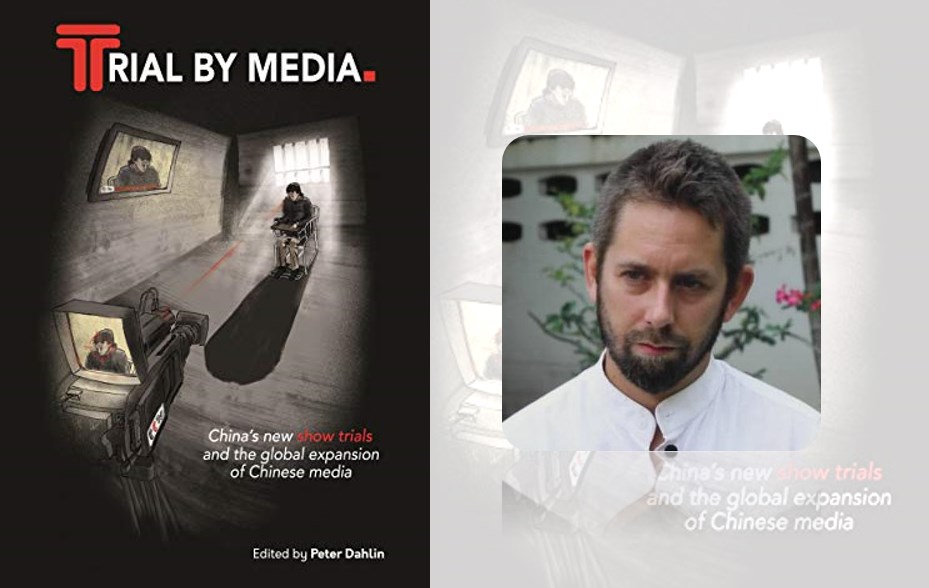
Prologue
Zhai Yanmin (翟岩民) is a rights defender who still lives in China, and one of the first people detained in what became the “709 crackdown”. Zhai himself is not a lawyer, unlike most other victims of the “709 crackdown”, but an activist supporting both those lawyers, and the larger rights defense community, in general.
After being detained and tortured, he only gave in and agreed to make a televised confession after police threatened that they would capture his son. That threat was used continuously throughout his time in Residential Surveillance at a Designated Location (RSDL) and later during imprisonment to force him to cooperate and make more televised confessions.
The experience of making the confessions, in which he was forced to discredit friends, has wounded him psychologically, to the point of considering suicide.
Like many, he participated in the Tiananmen Square protests of 1989. Seeing many of his friends being taken by police due to their involvement in those protests, Zhai decided to strive for a low profile, focusing on raising his son.
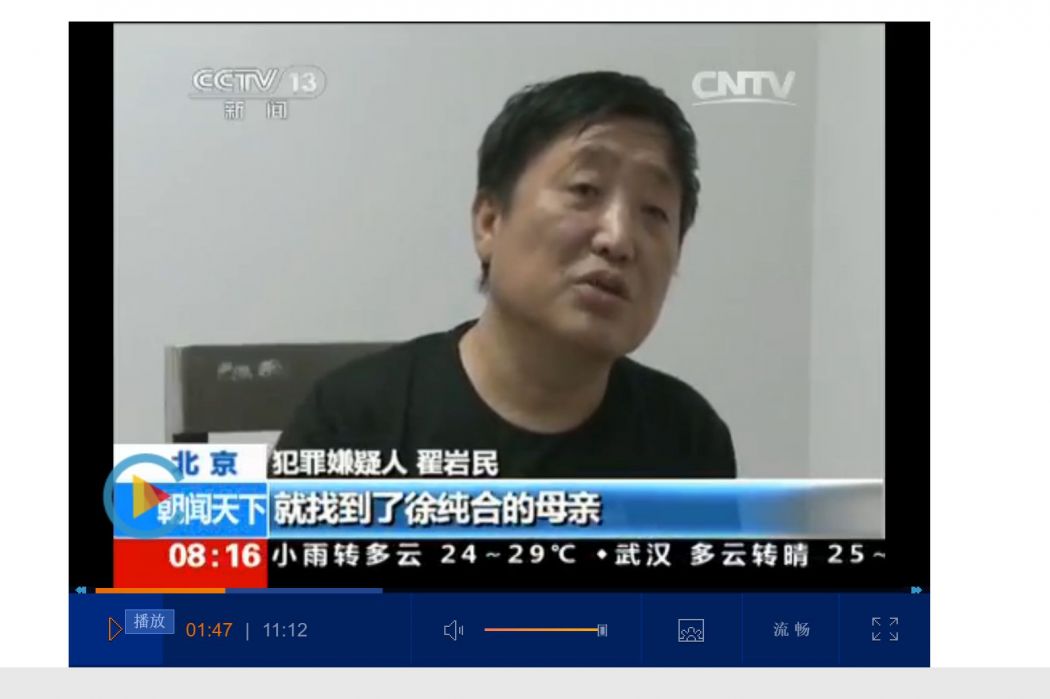
Over the past two decades, Zhai has worked in the tourism industry, as a taxi driver, and opened small businesses. Zhai stepped into human rights work shortly after the 2008 Olympics and the Charter 08 movement, which led to Nobel peace prize winner Liu Xiaobo’s imprisonment, and later, death.
About a week into the detention, the officer in charge of me, who was called Mr. Yang, told me that no one had been able to hold out for seven days before. Then he yelled out to someone outside: Go and get Zhai Yanmin’s son! When I heard him say this I was stunned, they had found my weak spot.
I’m very close to my son, you could say that we rely on each other for our very survival. My son is naïve and timid, and he’d never had any trouble with the police before.
I jumped up and told Yang that this matter had nothing to do with my son. He said: “We decide whether it has something to do with your kid or not!” Then he went on: “Old Zhai, I’m going to give you ten minutes to think about it: will you cooperate with us or will you make your son come here and join you!”
He left as soon as he’d finished speaking. It’s hard to put into words how conflicted I felt – my son had already had a hard life being born into this family, I just couldn’t let anything happen to make him suffer further. Yet, I knew they wanted me to “confess”, to hurt others, to use me. In the end, the choice was easy.
…they would use five or six electric batons to beat me.
About 10 minutes later, Yang came back, bringing with him a group of people. He said: “Old Zhai, have you thought it over yet?” I replied that as long as they didn’t touch my son, I’d cooperate with them. I’d cooperate, but just don’t make me incriminate or defame others.
He said: “Old Zhai, you’ve made the right decision. If you’d decided to cooperate with us earlier, then you wouldn’t have needed to suffer over the past seven days.”
During my time inside, from RSDL to pre-trial detention, I was tortured in so many ways. They cuffed my hands behind my back, they locked me to iron railings, they would use five or six electric batons to beat me. For a long period they didn’t let me eat, or drink water, or go to the bathroom.
They subjected me to so many kinds of torture. Yet, it was nothing compared with their threats that they would detain my son.
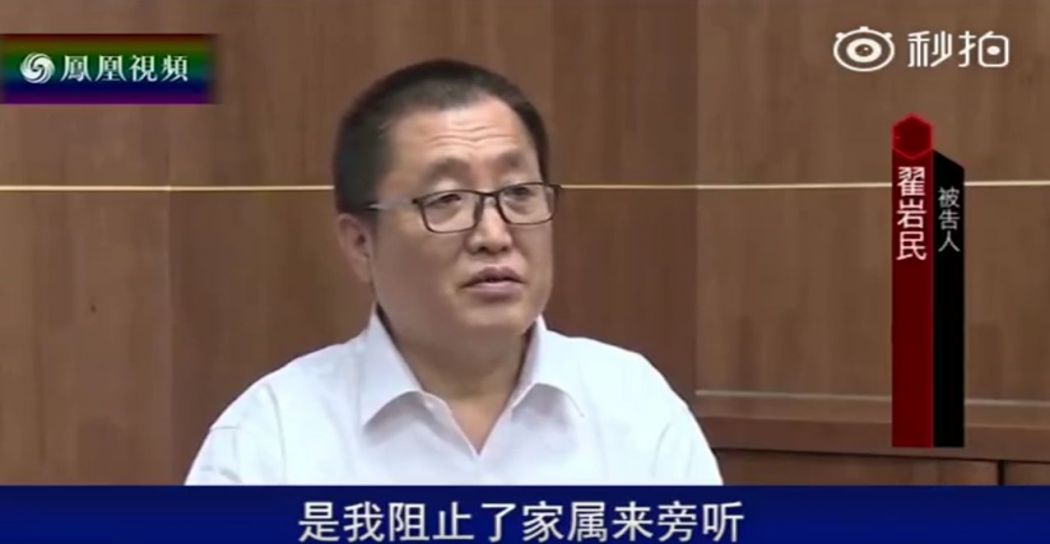
Yang was holding some printed papers and he asked me to sign them. I asked to read them first. He said: “You have to sign them whether you read them or not, so what use is there in reading them?”
I thought he was right, if I read it and then didn’t sign it they’d grab my son. I didn’t read them and signed them all. Later, anytime I didn’t cooperate with them, they’d always start with the threats to my family.
Before all this, they hadn’t let me sleep for several days and nights. Yang had tried to make me agree to make the video by telling me I wouldn’t be allowed to sleep until I did.
The guards at the detention centre where I was kept at first were working with them. In the night-time when they’d come and get me for interrogation, they’d shine a strong light on my face, strong enough to burn my skin if it went on for too long.
Then at four in the morning they’d take me back to my cell where I had another two hours of “duty”, meaning I was not allowed to sleep. In those early days I had no more than 30 minutes sleep at any given time.
That lack of sleep meant I had trouble remembering the exactly what they wanted me to say; that’s why they eventually wrote it down for me to read from.
***
When making the televised confession I was in RSDL I was kept alone, in solitary confinement. It would go on for six months. [Zhai would go on to make three confessions, the first one while in detention (2015-06-22), the second (2015-07-12) and third (2015-07-19) while in RSDL.]
In comparison, my time prior to RSDL, in a detention centre, felt like heaven – at least you shared a cell, could talk to people. Sitting alone in solitary confinement every minute could feel like an eternity.
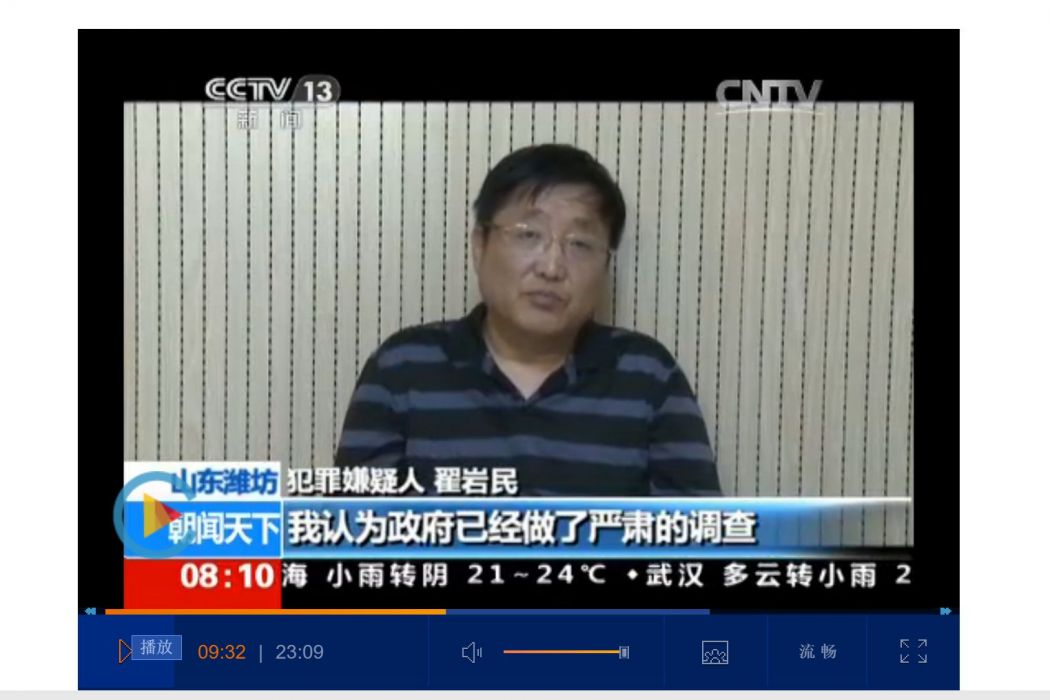
Before we did the TV confession, police wrote down my answers, gave me the paper, and told me to read and memorise them. If during one of the many recordings I spoke my own truth, didn’t follow the answers they had written for me, they’d immediately stop.
Before it all got started officer Yang would come in every day to ask if I’d memorised it all yet and said if I couldn’t, they’d think of another way.
While recording with CCTV I couldn’t always remember my line, so they had a huge LED monitor put up in front of me.
After practising a few days in my cell, we started to record. Every time before we recorded I would change into clothes that they’d prepared for me. They’d make me take medicine and they’d take off my handcuffs.
They told me I needed the medicine for my heart problem, but when I got out and checked with a doctor, there was nothing wrong with my heart. Every time they brought medicine, it never came with any label, only the pills themselves, so I never knew what the medicine really was.
The so-called heart medicine they gave me made me feel excited, I felt like talking. After taking the pills, once they started talking to me, I couldn’t control my feeling of wanting to talk.
But then again, at other times, the medicine made me sleepy instead. They gave me many kinds of pills to take every day, mostly to control my will or feeling.
They would tell me that they checked that I have this and that problem, so the medicine is for my own good, I had to take it. Eat it! They would also double check if I took it for real.
Below is a report from China’s state media:

Besides reading the words they had prepared for me, they told me I had to look sincere, at other times I had to look repentant.
I made six such recordings in total. Five of those times was with just police and their own camera crew, sometimes as many as a dozen people involved. The other time it was both police and media.
When I saw her I knew that I knew her, that I’d seen her, her face. She introduced herself as Dong Qian, a journalist from CCTV. There were also some others there, from some newspapers, but I do not know who they were.
Each journalist would take turns, asking me a question. They asked them freely [had no visible paper they read from], but the questions they asked all corresponded with the answers I had been forced to memorise.
So I just had to connect their questions to the right answers. When we made the TV recording with the media it didn’t take place at the same location, but instead I was black-hooded and taken downstairs and driven somewhere.
I think it took about 20 minutes. I could only see again once sitting inside another room, only then did they take off my hood.
While recording with CCTV I couldn’t always remember my line, so they had a huge LED monitor put up in front of me, but behind the camera, and the answer would appear there.
On top of that, when I couldn’t remember, the police would lean in and say that “all the other people” [detained in connection with the same case] were recording, and they were doing fine. If I didn’t do well, I would be the one to get into trouble.
Before we got started with yet another take police would remind me about my son, about what would happen if I didn’t cooperate. The journalists who interviewed me didn’t have much expression on their faces; I couldn’t say that they were sympathetic or that they were heartless.
The recording took place in a big rectangular meeting room, there were lots of people sitting on sofas all around.
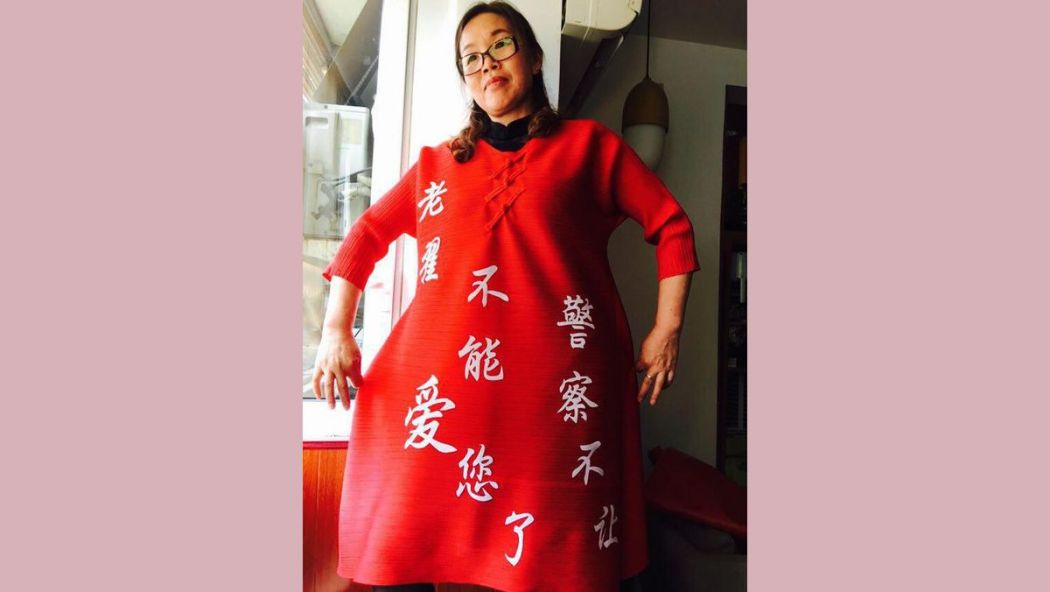
Questions went from how did I get to be on this path, to how did I get involved and how much money did I earn from doing these kinds of things. I remember it didn’t take too long.
My interrogators told me that the boss wasn’t happy with that recording. When I got back to my cell I wasn’t allowed to eat, or drink water, or go to the toilet – as a punishment. After some hours I had soiled myself.
They were not happy because in that recording, unlike the other ones, they wanted me to name names. To denounce and incriminate others – the one thing I had told them before I wouldn’t do.
They told me I had to say that because they had arranged it all; “Do you want to do it, or do you want us to take your son?” they threatened me, but I refused.
They kept doing more recordings for about a week. I assume their superiors were not happy, or that it was clear I really didn’t want to say what they told me to say.
They said I just needed to remember the words, to not look directly at the camera, to try to look more natural. If it wasn’t done right they’d start again and we repeated this again and again until we’d finished.
“You won’t be able to stand it, just try. Since you agreed to cooperate, you must submit completely to us.”
There were many cameras, not just one or two, and microphones, pointed at me. One time, the interrogation team was there and lots of high ranking security officers.
They took turns to ask questions, my answers were those that I had memorised days before. Before going in, officer Hu kept threatening and intimidating me – he warned me that if I made any mistakes, they’d immediately go and detain my son.
Every time we recorded they took off my handcuffs and I changed into the clothes they had prepared – civilian clothing. Sometimes if they weren’t happy with the recording they’d take me out and talk to me for a bit, told me not to be nervous and just say what I’d memorised before.
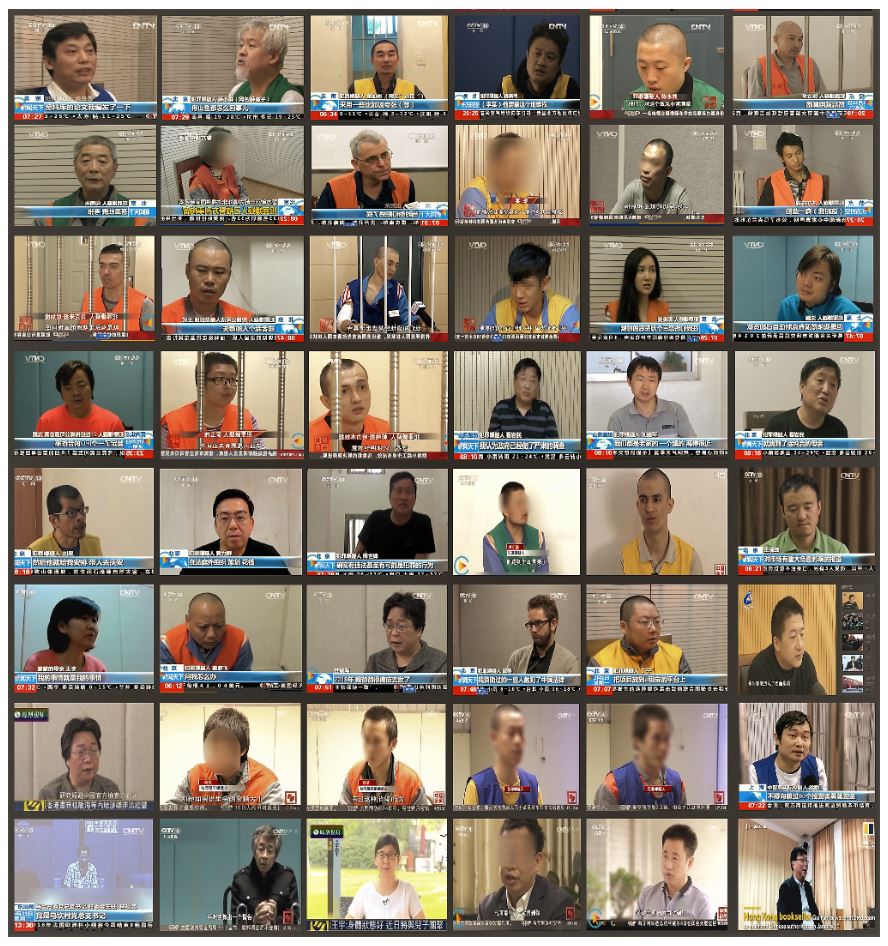
Sometimes I just couldn’t remember, I think it was a side effect of the medicine, and often my mind would go blank not long after I returned to my cell. They told me their job was to make my name stink so that no one would touch me afterward.
They told me to cooperate with them and show my repentance. They said they would do whatever it takes. “You won’t be able to stand it, just try. Since you agreed to cooperate, you must submit completely to us.”
***
Later on – while I was no longer in RSDL but in a detention center awaiting trial – they kept telling me that I needed to mentally prepare myself for my sentencing – I was going away for a very long time. So, I prepared myself to go to jail for many years. They kept saying that I was a leader.
While in RSDL there was a period when they kept coming every day for “ideological study”, where they tried to get me to understand how serious my “criminal actions” were. They said they had known about our every move for years.
They wanted me to fully understand my role, and I had to confess, repent and cooperate with them, otherwise I would just sit in jail for the rest of my life, and my family would be implicated too.
I never heard who was the leader behind the scenes [who ordered the confessions], but I did hear that some top security officers were going to be watching my courtroom trial.
They told me how I’d perform that day [at trial] would determine what would happen to me.
It was two weeks before my trial when one of my interrogators told me what was coming. They gave me a few pieces of paper, with answers written on it. Memorize it they told me. It was like the television recording all over again.
Except, they told me, this is for your trial – there are no retakes. They told me to memorise every single word, and make sure to not hesitate, no pauses, speak smoothly, and make sure to memorise the questions the judge was going to ask me. Again, to connect my answers with his questions.
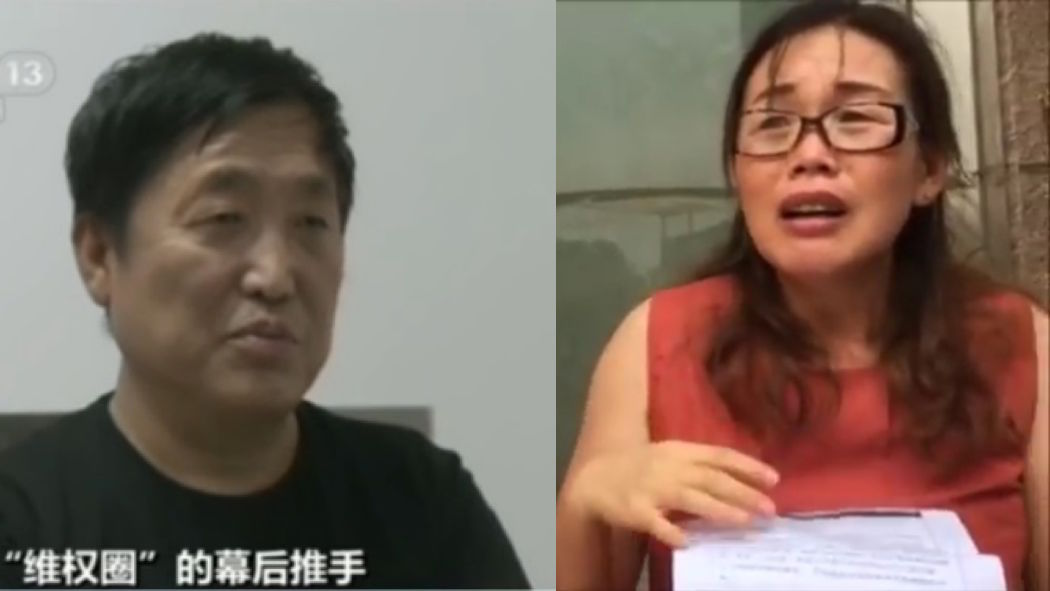
If I followed their instruction and performed well during the trial, I would definitely be dealt with leniently. In the last ten days before my trial the prosecutor, Mr. Gong, would come to visit me in the detention centre many times, just to check on how well I was memorising my answers, to check if I answered correctly, with correct impression and tone.
A week or so before the trial personnel from both the Procuratorate [prosecutor’s office] and the court came to visit. Together we – prosecutor Mr. Gong, Judge Mr. Cai, and me, the defendant – had a test trial. Question and answers practised. Everything that happened at the real trial – the questions asked, my answers given – were the same as during this test trial.
***
Later, after being released on bail [Zhai was given a three year suspended sentence], and got home I heard that they had harassed my son on several occasions – they said it was to help with my “ideological work” and they threatened him that they might detain him too.
If asked to give advice to others faced with a similar situation I think the choice depends on your family situation and your personality. If you think you can stand it, then persevere until the end.
Don’t be like me, don’t suffer only to later confess anyway.
Everything I said they had written down for me to say. Some of the things [they got me to say] were things I didn’t know anything about, but I still had to follow the script; it was all according to their line of thinking. I had no choice.
I do want to add something – I didn’t proactively sell anyone out. Not a single sentence was something of mine. I told them my bottom line was that I wouldn’t sell anyone out. They said there were some things I had to say.
I told them I didn’t know anything about this, they said that they didn’t care whether I knew about it or not, I had to read it out loud.
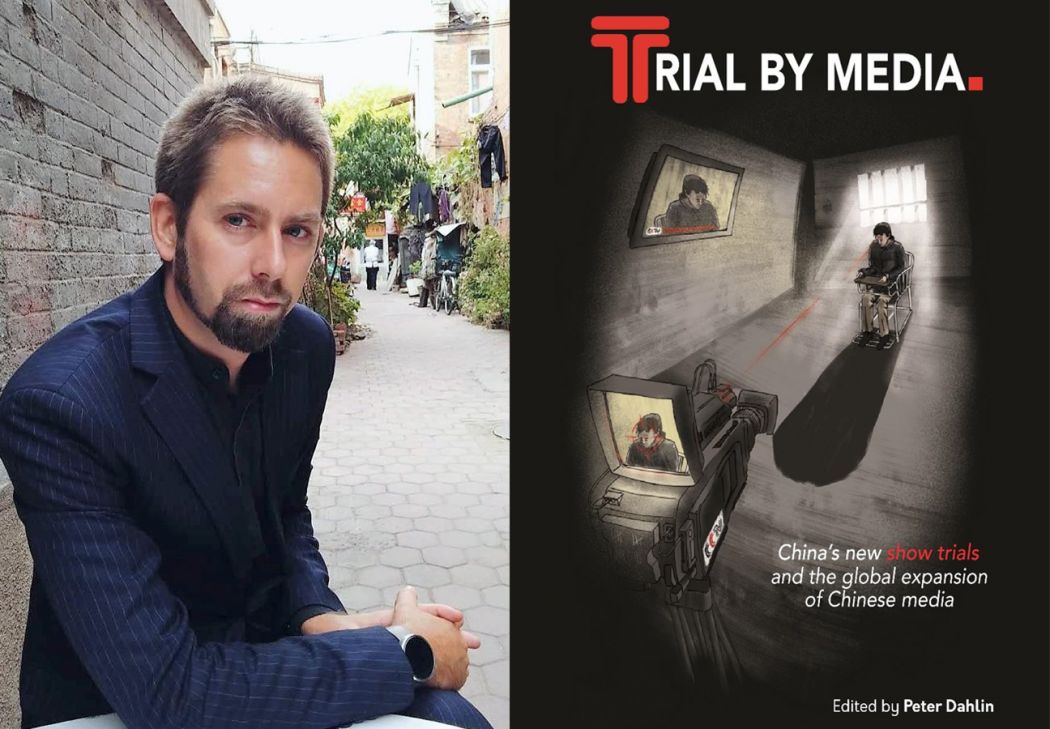
After my release, and thinking about what I went through, and imagining what others [connected to the “709 crackdown” who also made TV confessions] went through, I think all of us should have more contact and more communication, especially those of us who have made CCTV confessions, so that we can understand each other and support each other more, and stand up again.
We spent such a long time and recorded so much, but in the end they only broadcast a tiny portion. Although I never dare to watch the whole video in full, I have seen some clips, and surprisingly it seems they never aired anything from the video we made with CCTV and the other media – only the ones made with police.
But for sure they edited and cut it. My small part was edited together and became part of a bigger story. I didn’t watch the whole video because I feel such shame.
I feel I can’t face my former colleagues and my friends in the human rights community. There was a time I wanted to kill myself. I heard about people questioning me, blaming me, and criticising me.
After my release I made a post on social media, apologising, but the police found me almost right away, and told me to delete it. I did.
I knew the police would never let me explain publicly, and I remained quiet for such a long time.
Today when I look back, I think they made us go on TV to confess for three reasons:
- To suppress us and others who they felt were somehow opposed to the government, and to show what can happen to people like us, to show the horrifying results of standing up.
- To take down the “leaders” of the greater community, to destroy these people’s reputation, to make sure people do not trust them.
- To threaten the larger community, to make sure others would not dare to speak up against the government again.
I do my best trying not to explain it away or find excuses. Until now, I have spoken little about it, instead trying to undo the damage they did to me, but I know it will be difficult, perhaps more than difficult, but I have no choice but to try.
Zhai Yanmin
Epilogue
Zhai went on to describe his life after release:
“After I was released, I did some small work here and there, just trying to make a living, to feed myself and my family. I worked as taxi driver and did other small jobs. “
Zhai spoke about the inability to make even a basic living, feeling police would interfere to make sure whatever he did was sabotaged. And no longer being able to work to help others, to be a rights defender, he felt his identity slipping away. He even confided he had seriously thought about suicide, held back primarily because of his family.
“Then I got sick, and pretty bad too. Ever since the beginning of this year I have not been able to work at all, living off whatever friends can offer in help and support.
“Even though it has been a long time, I still get shaken and scared thinking back at my time in RSDL, and I live with both anxiety and memory loss today.
I tried to do some rights work when I was first released, but after I got sick I had to give it all up – my doctor tells me it would be a great risk if I ever get put through something like this again.”
Trial By Media: China’s new show trials, and the global expansion of Chinese media– edited by Peter Dahlin, is available now. [Free delivery via Book Depository: HKFP referral link]
